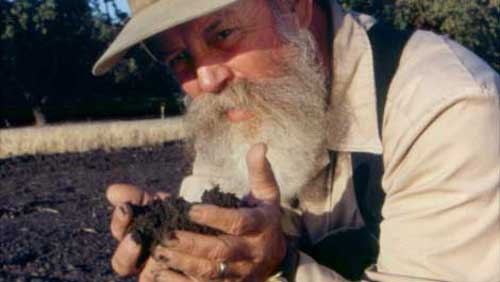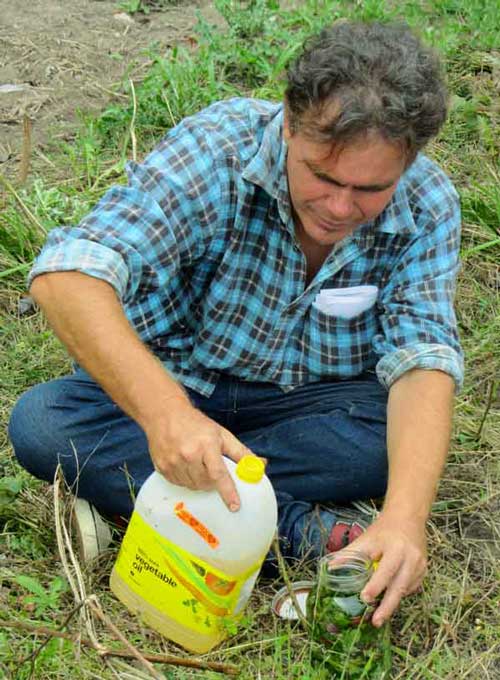

It was incredible good fortune that Tom and Denesse Willey led the first workshop I attended at my first 1988 California Eco-Farm Conference. I cannot imagine a better introduction to establishing a market garden. They started by telling us to not pay too much attention to all the other workshops that emphasized low-cost production. And they encouraged us to not pay too much attention to the fine folk who relentlessly struggle on small homesteads with mediocre land.
What the Willeys did emphasize is the importance of paying attention to basic good business information:
This was easy to understand. Prior to choosing to become a market gardener, I had been a small business consultant. The clients I worked with knew and respected best business practices. I was frankly surprised to observe how resistant many farmers feel toward these tried-and-true basics. Through the years Tom and Denesse have provided good answers to my periodic questions about sustaining farm businesses. It was a joy to see this current image of Tom (with his new crop of grey hair) and read his answers to important questions. Please read this insightful article about the Willeys.
In similar ways I can help my clients build sustainable farm businesses. Our Federal and Provincial Governments strongly support this model in their Growing Forward (GF2) suite of programs. They willingly reimburse 50% of the fees charged by approved advisors. I am one of the few approved advisors with hands-on organic market garden experience. Please call me for more information.

Whether you are a farmer wanting to learn more about our industry; or you are an eater wanting to learn more about our industry, visiting a few farms is a great mini-holiday. The near universal willingness of farmers to share their practices is indeed gratifying. You may be able to arrange your own tour at your favourite farmers’ market. Farmers you know and regularly support will make the time to provide a fascinating tour. For those farmers you don’t know and support, offer to arrange a group (a half-dozen families) to come for a tour. It is appropriate to offer the farmer payment for such a tour.
There are formally arranged tours by non-profit organizations that provide important training for our new farmers. FarmStart has upcoming tours focusing on irrigation systems, vegetable washing, cut flowers, small tools, beekeeping, hop growing, cheese production, and fall season extension. Ecological Farmershas on-farm workshops on seed production, lamb/sheep/wool production, pig breeding, small-scale orchards, heirloom tomatoes, post-carbon farming, value adds for restaurants, vineyard winery, cash crops, cover crops, integrating livestock, multi-generational CSA, and grass-fed beef.
If leaving Toronto is too much of a challenge, you can visit urban farms such as Fresh City Open Farm on June 22nd, Black Creek Community Farm Festival on July 26th, Food Share’s Eastdale Collegiate rooftop garden on July 17th, or FarmStart’s McVean Farm Picnic on September 14th.
Dr. Gianetto is an Italian botanist who was hired by the Mexican State of Michoacán to assist their many Organic farmers cope with the unrealistically low prices offered by multinational distributors. He developed ways to use local weeds to replace expensive insecticides, fungicides, and fertilizers.
Monsanto Company became so interested in his methods that they have made him generous offers of employment. But Dr. Gianetto so strongly believes this biotechnology belongs to hard-working farmers that he instead wants to make sure his discoveries are protected by becoming common knowledge.
With a generous grant from The Big Carrot Natural Food Market, Fulvio (as he is affectionately known) spent a couple summers at Plan B Organic Farm in Ontario to determine which of our Northern weeds could be used for farm-made natural insecticides, fungicides, herbicides, fertilizers and even hormones. [It seems as though God has planned all this.] You can help keep this information from becoming proprietary by attending his workshops and following his advice.
Fulvio will be offering one-day workshops at Plan B Farm (north of Hamilton) on June 28th, July 26th, and August 23rd. He is available to present additional workshops across Canada. Please email morrealed[at]yahoo.ca for more information.

For up-to-date food-related information about the June 12th election, please follow this page from Sustain Ontario. There are significant differences between the parties; and rural ridings tend to be dominated by particular parties. So strategic voting may be in your best interest.
My own view is that Kathleen Wynne and the Liberals understand what is needed for agriculture and food, and are doing a fine job of making good things happen. Even my staunch Conservative neighbours are starting to agree with this. However, when asked if they will vote Liberal the usual reply is, “I’m not sure if I will go that far.”
The Liberals’ platform:
There is nothing about agriculture and food in the Conservative platform. And they refuse to answer any of my questions. Their response is to reiterate reducing 100,000 government jobs and increasing 1,000,000 private sector jobs. [There provide no details how either of these numbers was derived. It seems as though the Conservative have borrowed from the Rob Ford Playbook. If you tell a lie enough times, some people will believe it.] After some pressure, they did write to say that any food and agriculture supports must pay their own way! To me this may mean ceasing support for local food [and then presumably rely on cheap dumped imported food].
The last time such a cutback was attempted was by the Mike Harris Conservative government. The very first cutback was to eliminate all agriculture extension workers! You may recall all the turmoil that ensued from cutting a mere 7,000 jobs. The only benefit for farmers appears to be lower taxes [but most farmers pay virtually no taxes anyway].
The New Democratic Party has very little in their platform related to agriculture. They will expand the Student Nutrition program [even more than the Liberals].
The Green Party of Ontario will introduce legislation to protect Class 1 land and source water as well as local farms and food processors. I have known and admired Mike Schreiner for many years. If he wins a seat in Guelph, I am sure he will expedite effective legislation projects for sustainable agriculture and food.
| forward to a friend and suggest signing up to receive this newsletter every month. |